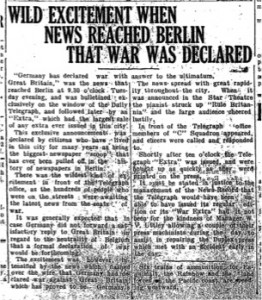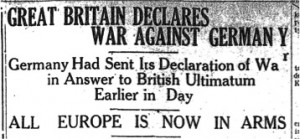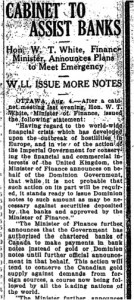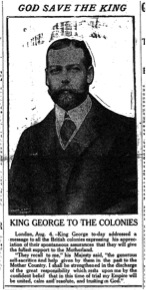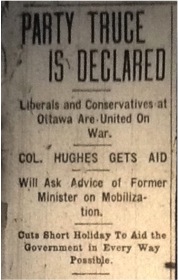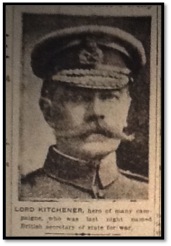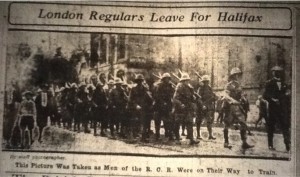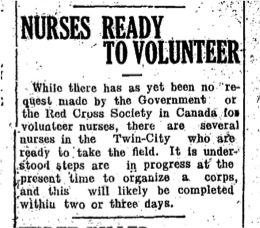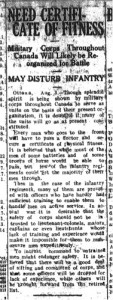On the evening of 4 August, hundreds of people had been waiting impatiently on the streets for any type of war news. When news reached Berlin, and the rest of Waterloo Region, at 9:30 p.m. that Great Britain had declared war on Germany, the people were gripped with wild excitement. The news was posted on the window of the Berlin Daily Telegraph office, and was later followed by an “Extra.” When it was announced that Germany responded with her own declaration of war against Great Britain, the Star Theatre pianist began to play “Rule Britannia” and the crowd began to cheer.
While some celebrated the declaration of war, it is evident that others in the community had mixed feelings about the war. Catherine Olive Breithaupt, the seventeen-year-old daughter of the Louis Jacob Breithaupt, who was the president of the thriving Breithaupt Leather Company, stated: “I am not extra proud of my Teutonic blood tonight.” This diary excerpt depicts the conflict German-Canadians in Waterloo Region would face during the upcoming war with Germany.
(“Wild Excitement When News Reached Berlin That War Was Declared,” Berlin Daily Telegraph, 5 August 1914; Breithaupt, Catherine Olive. 1914 Diary (Breithaupt Diary Collection, Rare Books Room at Dana Port Library, University of Waterloo), 3 August 1914.)
